The Tashkent Institute for Advanced Training of Doctors of the Ministry of Health of Uzbekistan, established in 1932, is the only institution for postgraduate education of doctors in Central Asia. Initially a small university with six departments, it has now become a major educational, medical and scientific centre of Uzbekistan. In 51, a course of urology was organised at the Institute (head - Associate Professor S.M.Igron). Life itself dictated the necessity of such a course capable of training urologists. These were the first post-war years, when the shortage of medical personnel was acutely felt. In Tashkent there was the only urological clinic with 60 beds headed by Prof. D.A.Vvedensky, which actually provided qualified assistance to urological patients alone. There were no urological departments in regional centres, and surgeons usually provided urgent care.
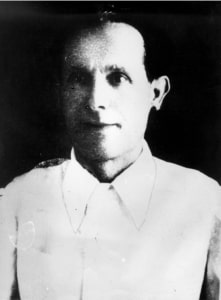
Associate Professor Igron Samuel Markovich
(1891-1963)
Therefore, it is difficult to overestimate the importance of the first course of urology for the training of urology specialists. Despite the very poor conditions (30-bed department on the basis of Municipal Clinical Hospital No.6, cramped conditions, etc.) the process of training of urologists began. Soon (1953) the course of urology was transformed into a department, headed by Prof. E.A.Frakman. However, three years later the department ceased to exist.
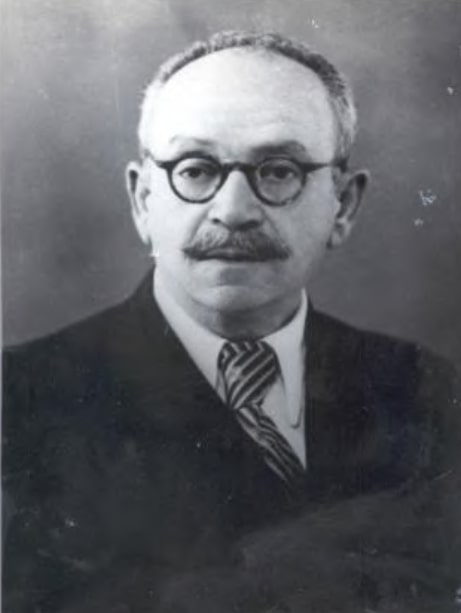
Frankman Elizar Abramovich
(1896-1978)
In 1961, the Urology Department was re-organised in Tashkent Institute of Urology, headed by docent A.A.Koisman until 1971. From 1971 to 1988 the department was headed by Professor A.M.Mukhtarov. From 1988 to 1991 the acting head of the department was Associate Professor D.M.Rubinov. From 1991 to the present time the chair has been headed by Professor A.A.Gaibullaev.
The leading problems developed in the clinic were pyelonephritis and urolithiasis. The questions of diagnostics, clinic and treatment of chronic pyelonephritis are being developed. Chronic renal insufficiency is being studied. Percutaneous femoral aortography, radioisotope renography, percutaneous antegrade pyelography, X-ray diagnostics of ‘invisible’ stones of the urinary system are introduced at the department. Employees of the clinic proposed and applied modified Lefora buzhzhd at inflammatory strictures of urethra, intracavernous anaesthesia at phimosis and paraphimosis, developed epidural-sacral anaesthesia and others. The staff of the department defended 2 doctoral and 4 candidate theses, published 115 journal articles and 5 monographs.
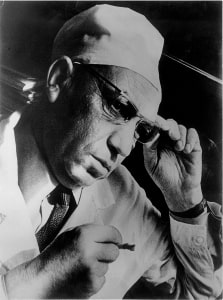
Kosman Asir Abramovich
(1919-1971)
After A.A.Koisman's death, the Department of Urology was headed by Professor A.M.Mukhtarov, who was at the same time the Chief Urologist of the MH of RUz and the Chairman of the Republican Scientific Society of Urologists.
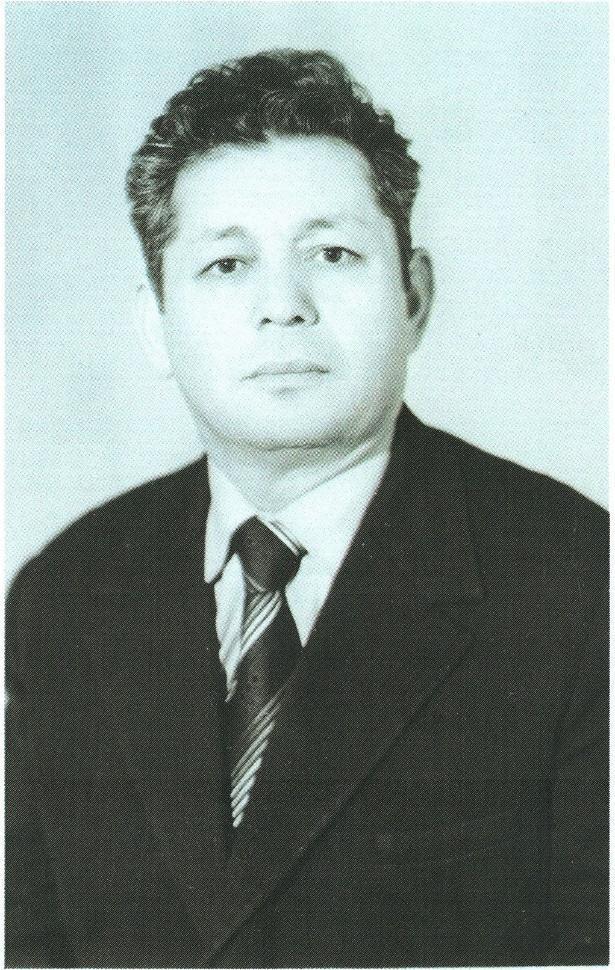
Professor Mukhtarov Odil Mukhtorovich
(1928-1988)
Professor A.M.Mukhtarov was a pupil of the greatest scientists, academicians A.Y.Pytel and N.A.Lopatkin, the first doctor of medical sciences among the scientists of local nationality. For almost 5 years he worked in the urological clinic of the 2nd Moscow Medical Institute, headed by A.Ya.Pytel and then by N.A.Lopatkin. In 1970 A.M.Mukhtarov defended his thesis for the degree of Doctor of Medical Sciences on the subject: ‘Acute purulent pyelonephritis (apostematous nephritis and carbuncle of the kidney)’. Professor A.M.Mukhtarov demonstrated original operations for hydronephrosis, prostate abscess, urethral strictures, etc., never used before in the clinic. Sensitivity, humanity, attentiveness to patients - the qualities that he always instilled in his staff. He attached great importance to the improvement of qualification and scientific work of the clinic doctors.
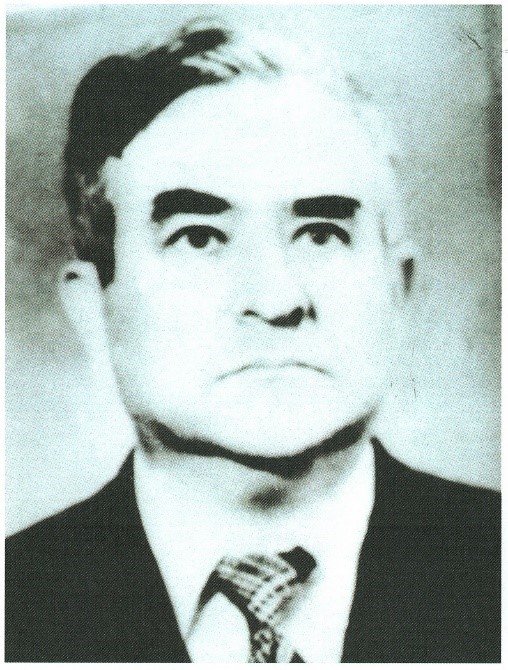
Rubinov David Meerovich
As a pioneer of trocar cystostomy, he substantiated and developed in detail the technique, indications and contraindications to trocar cystostomy. Autogemotransfusion in urological operations in elderly patients is now a routine method used in any urological department, and this is the merit of Prof. A.M.Mukhtarov, who justified the possibility of its use in the elderly. Both trocar cystostomy and autohemotransfusion in elderly people during urological surgeries are methods that can hardly be overestimated even from purely economic point of view.
Professor A.M.Mukhtarov has written a number of methodical instructions, manuals for surgeons and urologists on various urological problems. He has made an excellent translation of the textbook ‘Urology’ by A.Y.Pytel and N.A.Lopatkin into Uzbek language. Being engaged in training of urologists, he has done a lot for the development of health care. Thanks to his care as the chief urologist of the Ministry of Health, the urological service was developing in the country. New urology departments were established or the number of urology beds was increased in Karshi, Nukus, Jizzak, Kata-Kurgan and other cities.
Throughout all the years the staff of the department carried out scientific work. The leading problems were ‘New methods of diagnostics and treatment of urological patients’, ‘Inflammatory diseases of urogenital system’. Much attention was paid to immune changes in various diseases of urogenital system and organ transplantation. For more than 30 years the staff of the department has been dealing with the issues of prophylaxis and metaphialctics of urolithiasis. Clinical and experimental approbation of herbal preparations from medicinal plants of flora of Uzbekistan and foreign phytopreparations has been carried out. On the basis of long-term experience of the clinic, the staff of the department developed its own collection, extract and hydrolate form of the collection, for the treatment of calcium urolithiasis. The department has introduced new methods of research: percutaneous antegrade pyelography, radioisotope methods, ultrasound, angiography.
Since the moment of the department's organisation the staff has published 10 monographs, 250 articles and methodical recommendations, 15 dissertations, including 3 doctoral theses have been successfully defended.
Over the years, more than 12,000 doctors from Uzbekistan and Central Asia have been trained at advanced training cycles. More than 500 physicians have specialised in urology, and about 3000 have been trained at outbound thematic cycles. More than 600 specialists have been trained at distance cycles. Thematic cycles are held on emergency urology, urogynecology, minor urology, topical issues of urology, etc. More than 1000 clinical residents have been trained.
Creation of conditions for systematic postgraduate training has allowed in a relatively short period of time to train the personnel of urologists, so necessary in the Republic.

